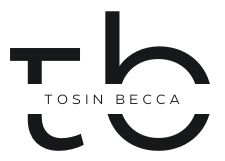
How Blockchain Technology Can Enhance Recycling Processes
Introduction
Recycling plays a crucial role in promoting sustainability and reducing the environmental impact of waste. However, the recycling industry faces several challenges, including inefficiencies in supply chain management, lack of transparency, and issues related to traceability. Blockchain technology, with its inherent characteristics of transparency, immutability, and decentralized data management, offers a powerful solution to address these challenges. In this blog post, we will explore how blockchain technology can enhance recycling processes, revolutionizing the way we manage and optimize recycling efforts.
- Traceability and Supply Chain Management
Blockchain technology enables the creation of a transparent and traceable supply chain for recyclable materials. Each stage of the recycling process, from collection to sorting, processing, and distribution, can be recorded on the blockchain. This allows stakeholders to track the origin, movement, and transformation of recyclable materials with precision. With this enhanced traceability, recycling companies can ensure that materials are properly handled, sorted, and processed according to environmental regulations and industry standards. Moreover, consumers and businesses can have confidence in the integrity of the recycling process, promoting trust and encouraging greater participation.
- Verification of Authenticity
In the recycling industry, verifying the authenticity of recycled materials is crucial. Blockchain technology can provide a reliable solution by creating an immutable record of each material’s journey. By storing information such as the type of material, its composition, and its source on the blockchain, stakeholders can easily verify the authenticity of recycled products. This verification is particularly important for materials that require specific certifications, such as recycled plastics used in food packaging. With blockchain, consumers can have confidence in the recycled content claims, leading to increased demand for sustainable products and a more circular economy.
- Efficient Tracking and Sorting
Efficient tracking and sorting of recyclable materials are essential for optimizing the recycling process. Blockchain technology can streamline this process by utilizing Internet of Things (IoT) devices and sensors. These devices can be integrated with the blockchain, capturing real-time data about the quantity, quality, and location of recyclable materials. This data can be used to automate sorting processes, improving the efficiency and accuracy of material separation. Furthermore, by analyzing the data stored on the blockchain, recycling companies can identify patterns and trends, enabling them to optimize their operations and make informed decisions regarding capacity planning, transportation routes, and resource allocation.
- Incentivizing Recycling Behavior
Blockchain technology has the potential to incentivize recycling behavior by introducing token-based reward systems. Through blockchain-enabled platforms, individuals and businesses can be rewarded with tokens for their recycling efforts. These tokens can be exchanged for discounts, products, or other incentives, creating a gamified approach to recycling. This incentivization mechanism encourages active participation and increases recycling rates. Blockchain ensures transparency and fairness in the distribution of rewards, building trust among participants and fostering a sense of environmental responsibility.
- Data Security and Privacy
In an era of increasing data breaches and privacy concerns, blockchain technology offers enhanced data security and privacy for recycling processes. By using cryptographic techniques, blockchain ensures that data stored on the ledger remains secure and tamper-proof. Additionally, blockchain enables data sharing on a need-to-know basis, allowing stakeholders to retain control over their information while still participating in a collaborative recycling ecosystem. This secure and privacy-preserving approach builds trust among stakeholders, encouraging them to share valuable data that can further improve recycling processes and outcomes.
Conclusion
Blockchain technology has the potential to revolutionize recycling processes by enhancing traceability, supply chain management, tracking, sorting, and incentivization mechanisms. By leveraging the transparency, immutability, and decentralized nature of blockchain, the recycling industry can overcome existing challenges and unlock new opportunities for a more efficient, sustainable, and circular economy. As we embrace the potential of blockchain, collaboration between recycling companies, governments


